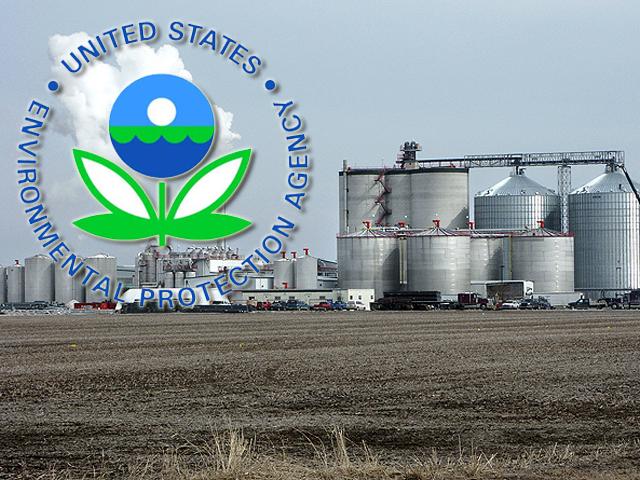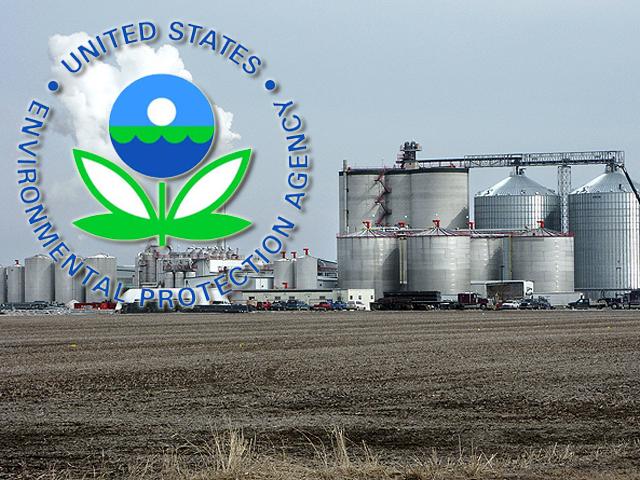Ethanol Blog
Ethanol Groups Call on EPA to Allow E15 Sales to Continue This Summer
LINCOLN, Neb. (DTN) – The nation's three largest ethanol-interest groups told EPA on Tuesday the agency needs to approve the petitions of eight Midwest governors to sell E15 in their states year-round permanently and issue a temporary waiver to allow E15 to be sold this upcoming driving season.
Comments were submitted to EPA as part of a public hearing on the agency's E15 proposal. That proposal has come under fire by industry groups because the agency – which was already many months late in issuing a proposal – have proposed delaying its effective date to 2024.
The EPA three weeks ago launched a public-comment period on the proposal to grant petitions from eight Midwest states to make a change in federal law.
EPA has proposed allowing permanent E15 in Illinois, Iowa, Minnesota, Missouri, Nebraska, Ohio, South Dakota and Wisconsin.
Also, attorneys general in Iowa and Nebraska filed an intent to sue with EPA Administrator Michael Regan if the agency does not change the effective date of granting those petitions from 2024 to 2023. In addition, legislation has been reintroduced in Congress to make E15 sales permanent nationally.
The Clean Air Act allows governors to notify EPA that they wish to reject the use of the 1-psi waiver for E10 in their states. This would result in the application of the same volatility limitation to both E15 and E10 -- essentially putting E10 and E15 on the same footing.
During Tuesday's hearing, Renewable Fuels Association President and CEO Geoff Cooper said the EPA has provided no viable reason for delaying implementation of the states' petitions until 2024.
P[L1] D[0x0] M[300x250] OOP[F] ADUNIT[] T[]
"If there truly is a problem with implementing the governors' petition this summer, it is a problem of the administration's own making," Cooper said.
"EPA's seven-month delay in taking any action at all on the petition has put the marketplace in a real jam and it should be EPA's responsibility to get us out of that jam. If the agency truly believes it cannot implement this petition in time for the summer of 2023, then it should consider using other regulatory authorities to ensure consumers have uninterrupted access to lower-cost, lower-carbon E15. Unless the agency acts quickly, Midwest drivers will soon lose the ability to choose a fuel that saved them 20 to 30 cents per gallon on average last summer at a time of record gasoline prices."
Also on Tuesday, four Midwest governors sent a letter to EPA Administrator Michael Regan urging the agency to issue a waiver to allow E15 sales to continue this summer. The letter was signed by Govs. Kim Reynolds, R-Iowa; Jim Pillen, R-Nebraska; Tim Walz, D-Minnesota; and Kristi Noem, R-South Dakota.
Chris Bliley, Growth Energy senior vice president of regulatory affairs, told the agency not to be "dissuaded by oil industry interests" who continue to oppose expanded E15 availability.
"EPA must finalize this important rule, provide an emergency RVP waiver for this summer, and ignore the smokescreen of claims made by the oil industry to maintain their grip on the American gas tank," he said in his testimony.
"It is vital that EPA finalize this proposal to be effective next summer, and, in the meantime, issue an emergency RVP waiver for 2023, so that E15 will remain available year-round as it has since the summer of 2019. The benefits are clear: if adopted nationally, E15 would reduce greenhouse gas emissions by more than 17 million tons, the equivalent of taking nearly four million cars off the road and would save consumers more than $20 billion in fuel costs while creating nearly 190,000 new jobs."
Ron Lamberty, chief marketing officer for the American Coalition for Ethanol, said during the hearing EPA's plan to delay implementation of the states' petition until 2024 made no sense.
The agency has said it had to consider challenges to the supply chain in determining when to implement the petitions.
"Retailers who have offered E15 and consumers who have purchased E15 in 2020, 2021, 2022, and who will be able to use it in 2024, will now have to quit selling and using E15 for three and a half months because of EPA foot-dragging," Lamberty said.
"Retailers will have increased costs from having to clean out and switch fuels in their tanks twice, those with blender pumps will incur service charges to adjust products blended twice, and pump decals will have to be changed twice."
Lamberty continued, "More importantly, the retailers and consumers using E15 do so because it costs 5 to 15 cents less than E10 and 40 to 75 cents less than non-ethanol gasolines. Now they'll have to spend more for fuel during the busiest time of the year because EPA didn't get its work done on time."
Read more on DTN:
"Senators Reintroduce E15 Legislation," https://www.dtnpf.com/…
Todd Neeley can be reached at todd.neeley@dtn.com
Follow him on Twitter @DTNeeley
(c) Copyright 2023 DTN, LLC. All rights reserved.






Comments
To comment, please Log In or Join our Community .